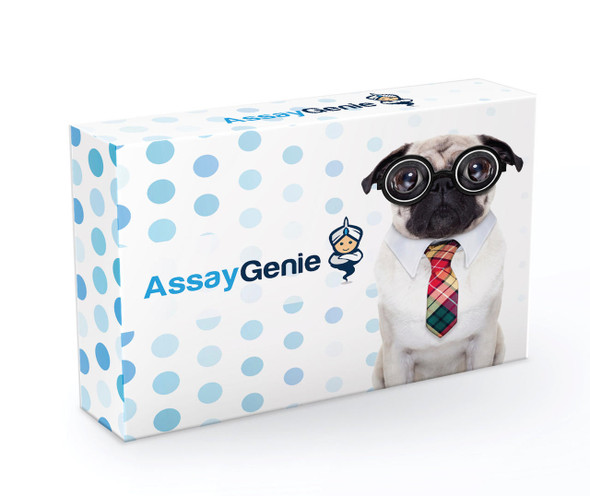Description
| Product Name: | Recombinant Cynomolgus Interleukin-17A/IL-17A (C-6His) |
| Product Code: | RPES6781 |
| Size: | 10µg |
| Species: | Cynomolgus macaques |
| Expression Host: | HEK293 Cells |
| Synonyms: | Interleukin-17A, IL-17, IL-17A, Cytotoxic T-Lymphocyte-Associated Antigen 8, CTLA-8, IL17A, CTLA8, IL17 |
| Mol Mass: | 15.9 kDa |
| AP Mol Mass: | 15-25 kDa |
| Tag: | C-6His |
| Purity: | > 95 % as determined by reducing SDS-PAGE. |
| Endotoxin Level: | < 1.0 EU per μg of the protein as determined by the LAL method. |
| Bio Activity: | Immobilized Cynomolgus IL-17A-His at 10 μg/ml (100 μl/well) can bind Anti-Human IL-17A mAb. The ED50 of Anti-Human IL-17A mAb is 128 ng/ml. |
| Sequence: | Gly24Ala155 |
| Accession: | G7P4U9 |
| Storage: | Generally, lyophilized proteins are stable for up to 12 months when stored at -20 to -80°C. Reconstituted protein solution can be stored at 4-8°C for 2-7 days. Aliquots of reconstituted samples are stable at < -20°C for 3 months. |
| Shipping: | This product is provided as lyophilized powder which is shipped with ice packs. |
| Formulation: | Lyophilized from a 0.2 μm filtered solution of PBS, pH 7.4. Normally 5 % - 8 % trehalose, mannitol and 0.01% Tween80 are added as protectants before lyophilization. Please refer to the specific buffer information in the printed manual. |
| Reconstitution: | Please refer to the printed manual for detailed information. |
| Background: | Interleukin-17 is a potent pro-inflammatory cytokine produced by activated memory T cells. There are at least six members of the IL-17 family in humans and in mice. As IL-17 shares properties with IL-1 and TNF-alpha, it may induce joint inflammation and bone and cartilage destruction. This cytokine is found in synovial fluids of patients with rheumatoid arthritis, and produced by rheumatoid arthritis synovium. It increases IL-6 production, induces collagen degradation and decreases collagen synthesis by synovium and cartilage and proteoglycan synthesis in cartilage. IL-17 is also able to increase bone destruction and reduce its formation. Blocking of interleukin-17 with specific inhibitors provides a protective inhibition of cartilage and bone degradation. |






